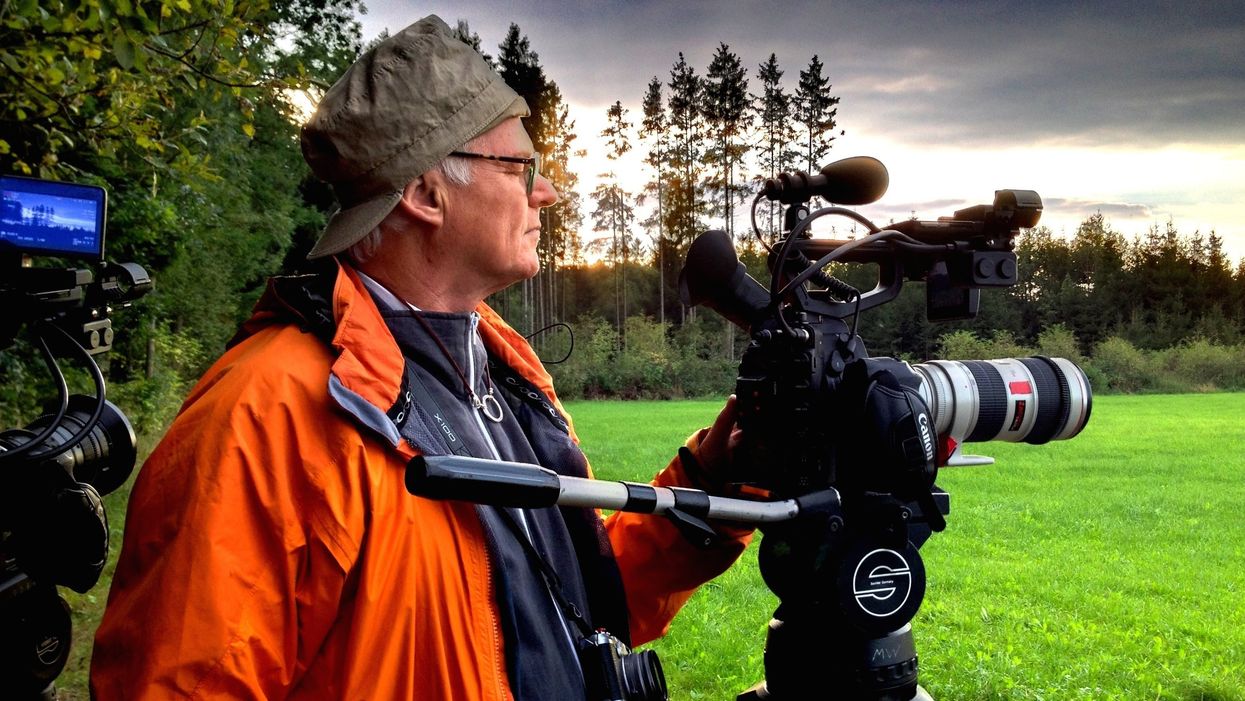Is 4K Not as Important as We Think It Is? 3 World-Class DPs Weigh In
Chances are, if you've been on our site in the past week, you've seen a 4K camera announcement or two or fifteen.

4K and higher resolution are clearly the dominant technological focus of camera manufacturers these days. With IBC 2014 and a veritable truckload of 4K camera announcements behind us, almost every single camera company now has a 4K camera of some sort. However, three prolific, high-profile DPs — Geoff Boyle, Rodney Charters, and Bill Bennett — sat down with Dan Chung of News Shooter at IBC to talk about the state of modern digital imaging. Interestingly enough, they're not particularly thrilled with the push towards high resolution.
This dream team of cinematographers is far more interested in dynamic range and color science than they are in resolution, especially when it comes to shooting dramatic narrative content. 4K and higher resolutions don't necessarily help audiences suspend their disbelief, which is (or should be) one of the primary goals for narrative filmmakers. Seeing every pore on an actor's skin can be more of a distraction for an audience than anything else. Many discerning cinematographers know this, and they often end up diffusing and softening their images in order to compensate for the critical (some would call it harsh) sharpness of modern digital cinema cameras.
Nevertheless, camera manufacturers have caught on to the 4K trend en masse. And who can blame them? Bumping up the resolution of their cameras might mean they'll sell more cameras. The converse is also true; if a company fails to implement 4K, even if they produce an HD camera with truly stellar color science and dynamic range, they might be seen as being behind on the times, archaic even. The reason that 4K is exploding is simple: consumers are demanding it. It's damn appealing and/or trendy to shoot in the highest possible resolution these days, and manufacturers know this.
The problem with all of this is that it has led many filmmakers to believe that resolution is the most important technical aspect of image acquisition, when higher pixel counts don't automatically yield better visual stories. None of this is to say that shooting in high resolution doesn't have real advantages. It allows for more detailed HD and 2K deliverables when scaled down, it can help future proof your deliverable, and it can make a significant difference for reframing in post, stabilizing shots, and tracking VFX markers. Therein lies the most confusing and controversial aspect of the 4K debate. It's a genuinely helpful technology in many ways, and it has numerous benefits for filmmakers as an acquisition format. However, the question of whether or not audiences are currently able to receive any benefits from that extra resolution is debatable (much of which is due to the lack of 4K post pipelines and theaters, at present — keep in mind that most films shot on 4K cameras, even when they end up playing in theaters with 4K projectors, were at some point downscaled/output/delivered as 2K files).
I certainly don't have any answers to these complex questions. However, it seems clear that, on our list of requests, increased resolution should not be slotted above increased dynamic range and improved color science. Maybe now that just about every camera is 4K, camera manufacturers will have no choice but to improve upon the other aspects of image acquisition. As a community of filmmakers and camera consumers, we certainly have the power to make it clear to manufacturers what we want.
Source: News Shooter











